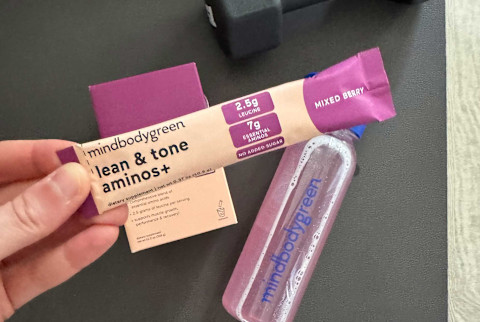Don’t be afraid or insecure. Let the words and images that are born in your heart pour out onto the page. Let it be a freewriting exercise that you can then choose to craft into a more formal poem — one that may use rhythm, rhyme, or other literary devices, such as alliteration or metaphor, to give it a more poetic flair.
Poetry is growing in popularity and millions of people spanning the globe have a renewed passion for embracing the creativity, beauty, and art of poetry. Poetry has the power to heal and we make sense of the world through the human expression of writing and reading. Are you wondering: What does it take to become a successful poet? What is the best medium and venue to release your poetry? What are some techniques to improve or sharpen your skills? In this interview series about how to write powerful and evocative poetry, we are interviewing people who have a love for poetry and want to share their insights, and we will speak with emerging poets who want to learn more about poetry either to improve their own skills or learn how to read and interpret better. Here, we will also meet rising and successful poets who want to share their work or broaden their audience, as well as poetry and literature instructors.
As a part of this series, I had the pleasure of interviewing Julie Sutherland, author of Bright Poems for Dark Days.
Dr. Julie Sutherland is a writer and editor based in New Brunswick, Canada. She is a research associate with the National Collaborating Centre for Indigenous Health at the University of Northern British Columbia. Julie has a long history of teaching poetry and other literature in educational and non-educational settings in Canada, the US, the UK and online. She is passionate about the capacity of literature to effect change in the human spirit. She is the author of Bright Poems for Dark Days (Frances Lincoln, 2021).
Thank you so much for joining us in this interview series! Before we dive into the main focus of our interview, our readers would love to “get to know you” a bit better. Can you share a story about what first drew you to poetry?
When I was just learning to read, my two favorite books were Poems and Rhymes, part of the Childcraft series that came out in the 1970s, and Dennis Lee’s poetry collection, Alligator Pie (1974). When I open those now-dog-eared books, which I have kept all these years, I can still feel the wonder I experienced when my young self entered into the world of the poems. My awareness of poetry has expanded so much since then, and I’m very relieved that the canon has widened its circle to include a more diverse range of poets, but the deep delight I took in the literary form itself is as powerful now as it was then. The way poetry transforms the human spirit is pure magic.
Can you tell us a bit about the interesting or exciting projects you are working on or wish to create? What are your goals for these projects?
I have a couple of exciting projects on the go. I’ve begun facilitating online literary events for the London Literary Salon. Through September and October, I’ll be co-facilitating a multi-week series on Shakespeare’s Othello, which I’m following with another online Salon on John Webster’s great English Renaissance tragedy, The Duchess of Malfi. The wonderful thing about the Salons is their accessibility, not only because they’re online (so they can accommodate people all over the world) but also because they are open to readers with any level of experience. All you need is curiosity and receptiveness to others’ insights. I’ve also been having so much fun co-creating videos for my new YouTube Channel, Shakespeare in the Ring (my moniker there is Dr. Pol). This is the channel where fearless actors verbally spar over Shakespeare — and the viewer gets to be the judge. My goal is always to encourage readers to experience how literature can help them think and feel differently and, I hope, better.
Wonderful. Let’s now shift to the main focus of our interview. Let’s begin with a basic definition so that all of us are on the same page. What is your definition of poetry? Can you please share with us what poetry means to you?
Poetry is a form of writing where the heart is turned inside out, and where sound and images are often more powerful or stirring than sense. Poems are words that speak to us even when the phrases themselves may be difficult to understand. Finally, poetry is a place where we can come to understand ourselves and others better as we enter into the words and worlds of the poems. What does poetry mean to me? All I can say is that the metamorphosis it inspires in me feels like pure magic.
What can writing poetry teach us about ourselves?
I should say at the outset that I don’t consider myself a poet, so I don’t feel fully equipped to answer this question. That said, I have often hosted poetry workshops in which participants (and I) read short poems — often haiku — and then write our own. As I’m sure you know, haiku are very short poems that have sense and feeling — rather than action — at their core. The exercise of writing a haiku is manageable in a short amount of time and allows writers of any skill level to dive into their hearts, taking pleasure in turning what they experience there into words. I have also worked with groups on writing collaborative poems, sometimes acrostics (poems in which the first letter of each line spells a word), sometimes more free-flowing verse. My favourite poetry writing exercise was at a yoga studio in Cape Breton, Canada, where, before the participants began their yoga practice, we wrote a lovely collaborative poem about the importance of living in the moment.
Who are your favorite poets? Is it their style, the content or something else that resonates with you?
I’ve always adored the metaphysical poets of the 17th century — John Donne, George Herbert, Andrew Marvell and so on — though, sliding backwards, I love the more melodious poetry of Sidney, Spenser and Shakespeare. While I have a particular fondness for 16th and 17th century verse, including women poets such as Aemilia Lanyer and Elizabeth I, I am also deeply moved by more recent poets, such as Maya Angelou, Denise Levertov, Carol Ann Duffy and, very recently, Jackie Kay. Though they’re all very different, what resonates with me in each of them is their arresting imagery and poignant themes.
If you could ask your favourite poet a question, what would it be?
How do you feel when people read your poems as a form of autobiography, or at least try to read more of your personal life into your poetry than you may have intended?
Poetry can be transformational. Is there a particular poem that spoke to you and changed your life or altered a perspective you held in some way? Can you share the story?
Yes. “Darling,” by the Scottish poet, Jackie Kay. I only discovered the poem recently. There’s a video on YouTube in which Kay herself recites it, which I have listened to a dozen times at least. I recently lost a very good friend to suicide, and the grief has been hard-going. Jackie Kay’s poem reminds me that the “the dead don’t go till you do, loved ones.” When I read the poem, I feel a community of grievers around me, and I experience hope and healing.
Today’s world needs so much healing. Can you help articulate how poetry can help us heal?
Yes, the earth itself, humans, and the more-than-human world are all in so much pain. We seem to be experiencing deep division, immense fear, and great uncertainty. In her wonderful book, Don’t Read Poetry (Basic Books, 2019), Stephanie Burt celebrates many poems, including those that calm us as we try to make our way “in a frightening world” (p. 10). Poems whose rhythms or images soothe us can pull us out of the darkness. Other poems, in which poets express fears, hopes, joys and sorrows, can help us feel as though we have connected with another human who may be in many ways vastly different from us. In this way, poetry can help us develop understanding and empathy and can help us feel less alienated from others. These experiences can bring healing too. Some poetry can even inspire us to strive for social or environmental justice as we read about the plight of other humans and the natural world. Or, it can summon our resolve to be better stewards of the earth as we are reminded that Mother Nature has been so generous to us. Different poems will pull on different heartstrings, and when they strike a chord, they have incredible lasting and healing power.
We’d like to learn more about your poetry and writing. How would you describe yourself as a poet? Can you please share a specific passage that you think exemplifies your style or main message?
My background is in the study of poetry, and other literature, for academic and creative purposes. In terms of writing poetry, I’m an amateur. So, I only have examples of poems I’ve written for personal fulfillment. That said, I’m happy to share one that might help other poetry lovers, who don’t feel like writers themselves, see how poetry can empower us to explore our emotions. This poem is about meeting my partner of 16 years, which happened by chance at a café in the middle of a bleak winter.
The Long Winter
Warmth was the bitter edge of a
once fond memory in that place –
despair moved in where thaw had
feared to tread.
A blizzard reigned, hegemon.
Flames whimpered relentlessly,
furnaces whined incessantly,
cabin fever rose to an
unprecedented high.
Frantic, a solitary figure pushed
through the squall–
fingers numb, lips fractured,
heart broken.
She turned her face to
the glow of café window,
smelled magic —
her congealed blood stirred.
Timid, yet resolute,
she tiptoed in, breath bated.
A woman looked up and met the
lost one’s eyes: ‘I’ll change your life
with a dark roast,’ she said,
with winning frankness.
And she did.
Julie Sutherland
What do you hope to achieve with your poetry?
I suppose catharsis. Anything I write is for an audience of one (me) or two (my spouse and me) or four (my spouse, my two cats, and me), so I’m really using poetry to explore my own experiences and feelings. For me, it’s a form of journaling. Many others before me have said the same thing about their own poetry. One example is the great British writer, actor and mental health advocate, Stephen Fry, who says he writes poetry “for the same reason that, according to [Oscar] Wilde, one should write a diary, to have something sensational to read on the train” (The Ode Less Travelled, Arrow Books, 2005, p. xix).
In your opinion and from your experience, what are 3 things everyone can learn from poetry?
We can learn about ourselves, in so far as poetry speaks truths about us that we ourselves may have struggled to put into words. We can learn about others, in so far as poetry reveals truths about other humans and the other-than-human world. Finally, we can learn about the power of art to bring deep and lasting healing.
Based on your own experience and success, what are the “five things a poet needs to know to create beautiful and evocative poetry?” If you can, please share a story or example for each.
I’m sure a published, experienced poet could give a better answer, but I’ll tell you what helps and inspires me. First, write about something that is meaningful to you. To borrow from the 16th-century English poet, Sir Philip Sidney in Astrophil and Stella, “look in thy heart, and write.” Next, read others’ poems! Pick out ones you like and figure out what you like about them. Try writing one of your own based on theirs. Use their rhyme scheme and rhythm as a guide. Third, don’t give up! Write for yourself and don’t worry about what others think. Fourth, keep working away at your poem. It would be a rare thing for a poem to be just as you like it on the first try. Tinker with it. Fifth, read Stephen Fry’s The Ode Less Travelled. He openly admits he’s not a published poet. Fry makes learning about the mechanics of a poem entertaining and encourages his readers to try writing some themselves. His advice? You’re never too old to start! His precise words are, “But maybe you are too old a dog to learn new tricks? … That’s hooey” (p. xix).
If you were to encourage others to write poetry, what would you tell them?
Don’t be afraid or insecure. Let the words and images that are born in your heart pour out onto the page. Let it be a freewriting exercise that you can then choose to craft into a more formal poem — one that may use rhythm, rhyme, or other literary devices, such as alliteration or metaphor, to give it a more poetic flair.
How would you finish these three sentences:
Poetry teaches… empathy.
Poetry heals by… reminding us we’re part of a larger human and other-than-human community.
To be a poet, you need to… feel.
We are very blessed that some of the biggest names in Entertainment , Business, VC funding, and Sports read this column. Is there a person in the world, or in the US, with whom you would love to have a private breakfast or lunch, and why? He or she might just see this, especially if we both tag them 🙂
Someone whose writing has inspired, encouraged and influenced me is the British author and mental health advocate, Matt Haig.
How can our readers further follow your work online?
I’ll be writing about Bright Poems for Dark Days on my Facebook (https://www.facebook.com/julie.e.sutherland), Instagram (@jule.e.sutherland) and Twitter (@JulieSuth) pages. On Instagram and Twitter, readers can also follow the hashtag #brightpoemsfordarkdays
I’ve also got an author page on Goodreads and, of course, they can check out my poetry anthology on that site.
My website is currently under reconstruction, but hopefully it will be ready soon: www.juliesutherland.ca
Thank you for these excellent insights, and we greatly appreciate the time you spent. We wish you continued success.








